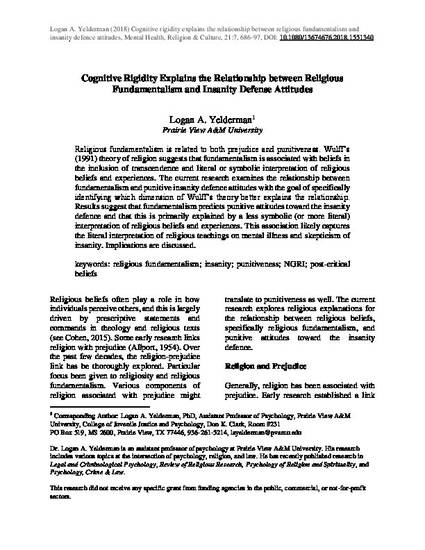
Article
Cognitive Rigidity Explains the Relationship between Religious Fundamentalism and Insanity Defense Attitudes
Mental Health, Religion & Culture
(2018)
Abstract
Religious fundamentalism is related to both prejudice and punitiveness. Wulff’s (1991) theory of religion suggests that fundamentalism is associated with beliefs in the inclusion of transcendence and literal or symbolic interpretation of religious beliefs and experiences. The current research examines the relationship between fundamentalism and punitive insanity defence attitudes with the goal of specifically identifying which dimension of Wulff’s theory better explains the relationship. Results suggest that fundamentalism predicts punitive attitudes toward the insanity defence and that this is primarily explained by a less symbolic (or more literal) interpretation of religious beliefs and experiences. This association likely captures the literal interpretation of religious teachings on mental illness and skepticism of insanity. Implications are discussed.
keywords: religious fundamentalism; insanity; punitiveness; NGRI; post-critical beliefs
Disciplines
Publication Date
2018
Citation Information
Logan A Yelderman. "Cognitive Rigidity Explains the Relationship between Religious Fundamentalism and Insanity Defense Attitudes" Mental Health, Religion & Culture (2018) Available at: http://works.bepress.com/loganyelderman/4/
